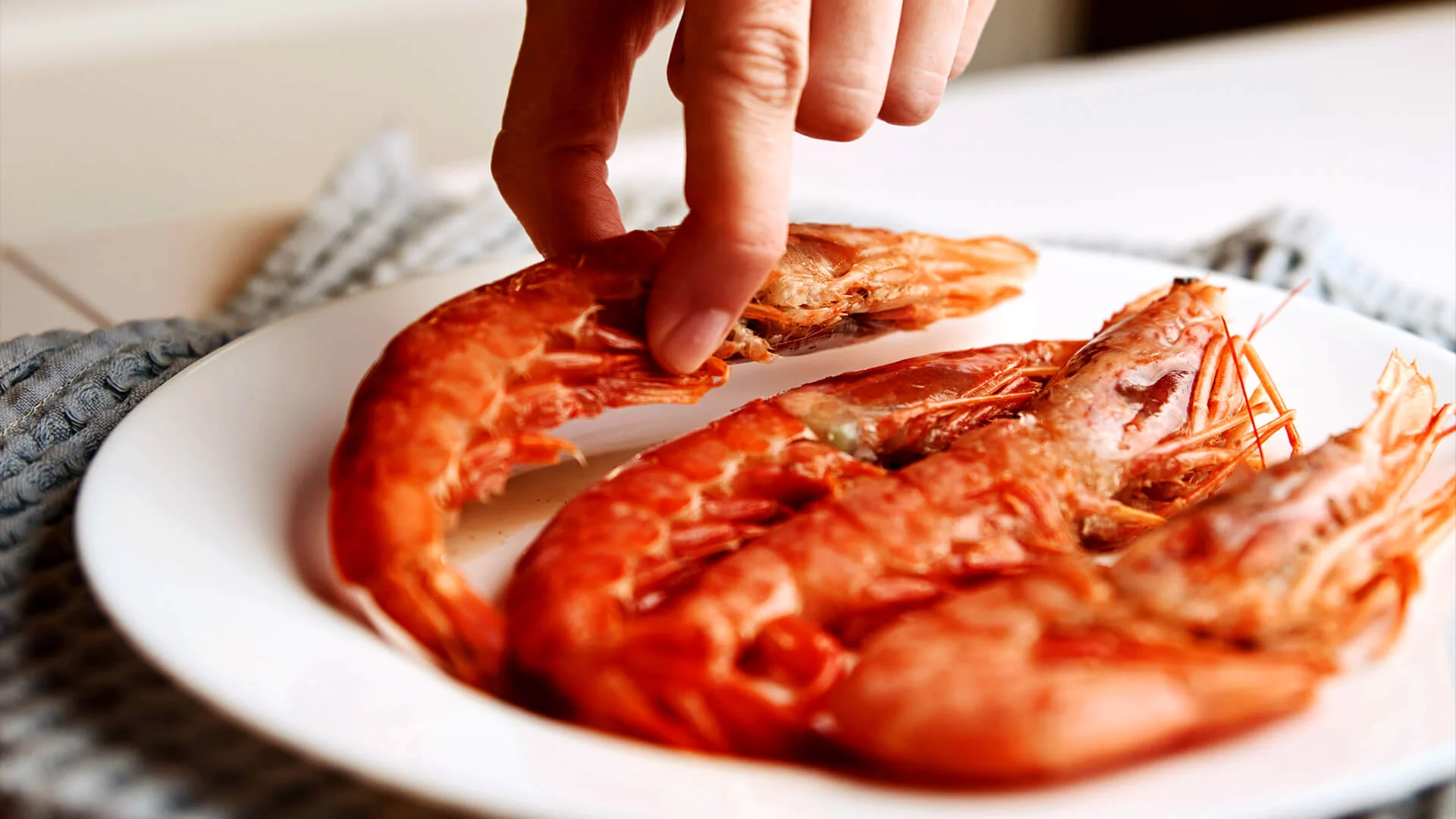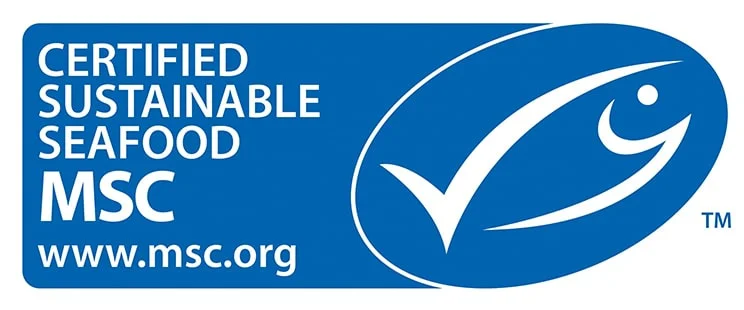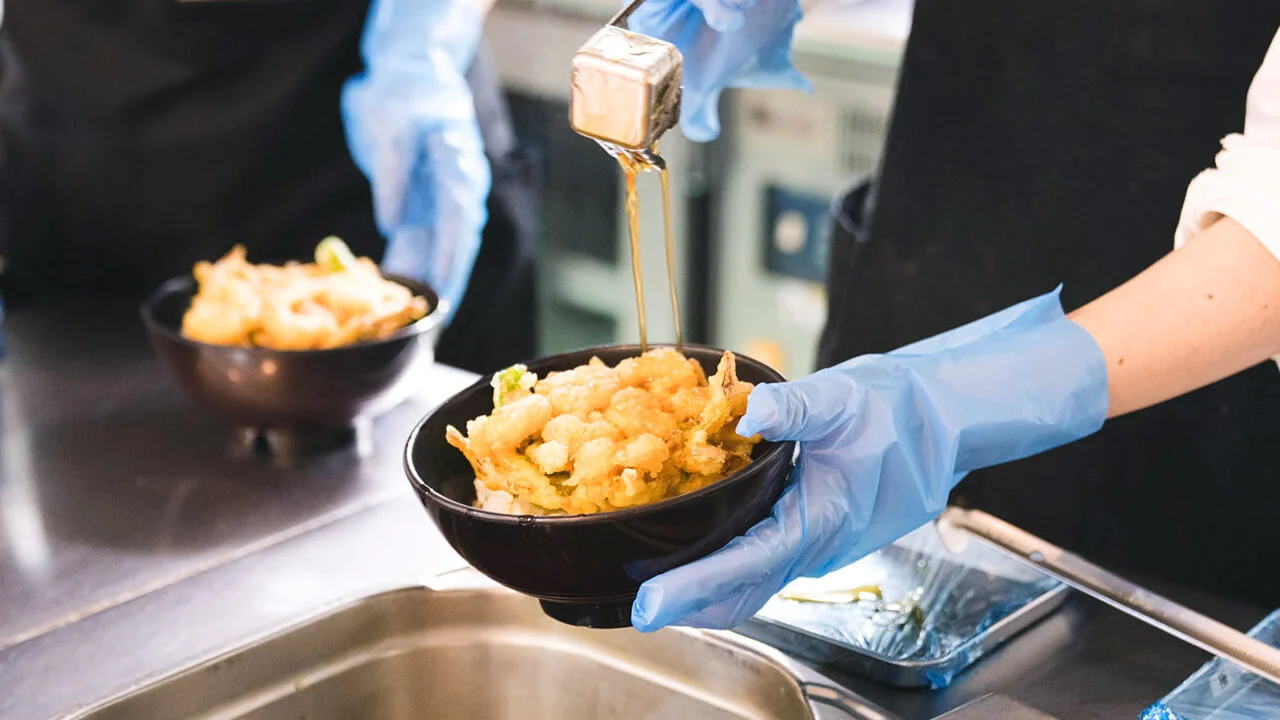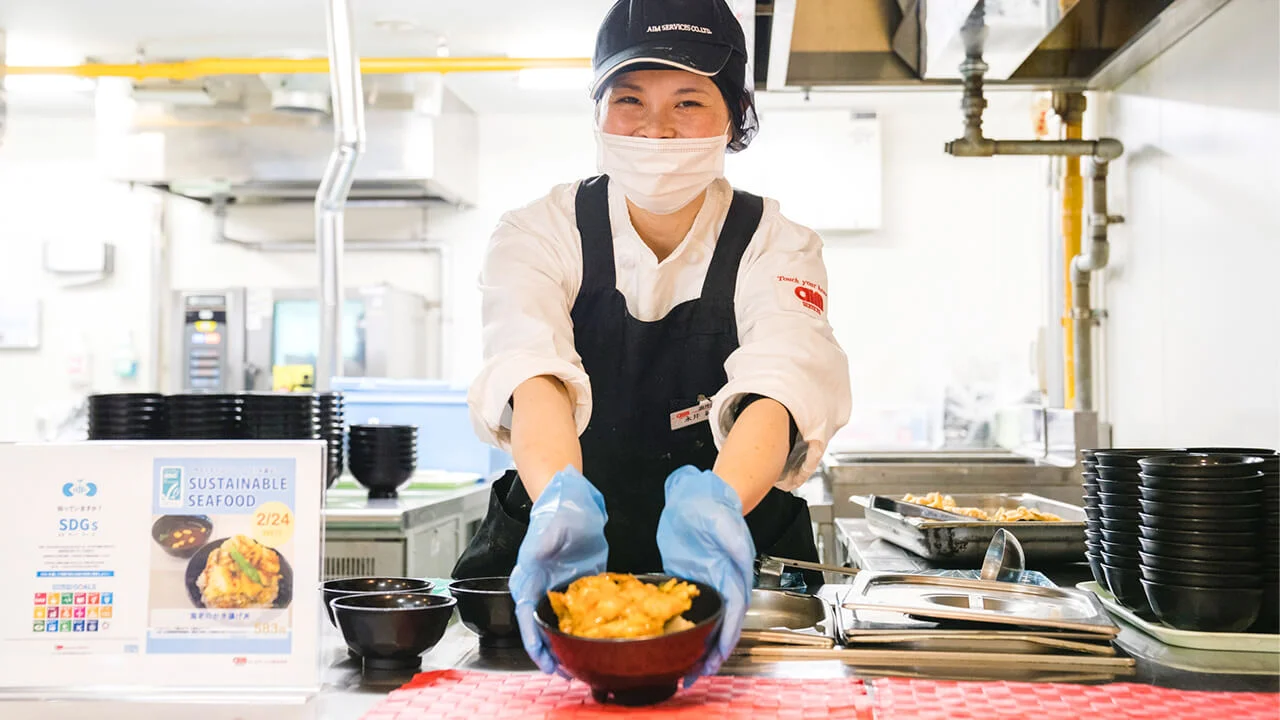

Sep 28, 2021
VISION & IDEAPursuing the SDGs, starting at the dining table
Sustainable seafood: meal choices that protect marine ecosystems
If you were told that all edible seafood will disappear from our oceans by 2048, would you believe it? The truth is that marine life is disappearing to such an extent that fishers around the world are having trouble filling their quotas. There are concrete reasons for this, and there are also actions we can take as consumers to help protect our vast oceans.
Contents of this article
No more fish at the table: the little-known crisis in our seas today
Many people have noticed that prices for fish at the supermarket have risen in recent years. One reason for this is increased consumption of fish and other seafood products. Our planet’s population has doubled in just half a century, and as a result global seafood consumption has shot up fivefold. Because supplies cannot meet this increased demand, naturally prices are rising. This type of change might not be obvious in day-to-day life, but the fact remains that the human race is gobbling up its marine resources at an astounding pace.
In 2006, a joint research team from the United States, Canada and other nations published a shocking research report in the academic journal Science. It stated that the fishing industry is rapidly destroying biodiversity among marine life, adding, “If the human race continues fishing at this pace, the world’s edible fish supplies will be completely depleted from our seas by the year 2048.”

Previously fishers considered exceptionally big catches to be perfectly acceptable. It was because even if fishers caught a few too many fish, they were endlessly increasing in those vast waters, and the negative effects of one or two big catches were negligible.
However, as culinary cultures have developed and diversified and the global population has increased over the years, market demand for seafood has risen rapidly. Members of the fishing industry adapted and innovated in response to this increased demand, leading to major improvements in fishing boat mobility, fishing technologies and other areas to enable much larger catches. This has progressed to such a degree that many catches of fish have begun to damage and destroy marine ecosystems, and marine life populations are now plummeting.
Because people have failed to consider the big picture of marine resources and demanded too much of them individually, a global ocean crisis is now unfolding. But there’s something each of us can do as consumers to protect marine ecosystems and ensure that fish and other tasty sea creatures are still around in the future for us to enjoy.
Consumers can protect marine ecosystems without sacrificing their own needs

It’s possible, as a consumer, to identify which seafood products in the market were caught or raised based on practices that protect the marine environment by looking for the Marine Stewardship Council (MSC) label and the Aquaculture Stewardship Council (ASC) label. The MSC label is only applied to wild fish or seafood from fisheries that catch fish in ways that ensure the long-term health of a stock or species and the wellbeing of the ocean. The ASC label certifies aquaculture products raised in a manner that has minimal impact on the natural environment and society.
Purchasing products with either of these labels helps support sustainable fishing and aquaculture industries as well as the people who make them possible. These types of seafood products which promote sustainable fishing industry practices are known as “sustainable seafood.”
The sustainable seafood concept originated in the United Kingdom. This is a nation which consumes large amounts of cod for their famous fish and chips, and much of this cod is caught off the east coast of Canada. Unfortunately, irresponsible fishing practices in this region led to sharp declines in cod catches in the early 1990s, resulting in the popular dish’s disappearance from many British dining tables. Faced with the prospect of losing what many people consider to be the national dish, they finally began to understand the true gravity of the crisis.
The World Wildlife Fund (WWF) and Unilever, a leading multinational corporation, responded to the people by proposing a conception to catch seafood in sustainable ways and sell them with an ecolabel attached to encourage consumers to choose such products and thus promote greater sustainability throughout the industry. Based on their conception, MSC, an independent nonprofit organization was established in London in 1997. MSC label and ASC label have come from this conception.
The MSC and ASC certification frameworks are designed to evolve and grow together with consumers. By choosing sustainable seafood with either of these labels, individual consumers can contribute toward greater environmental sustainability.
DENSO is also working to rectify ocean-environment issues using the sustainable seafood approach.

Developing awareness through the foods we eat every day
The most effective way to encourage people to choose sustainable products and protect our planet is not by forcing strict regulations on fishers, nor by compelling consumers to think only about the environment when they shop. The choice must happen more organically, which is why DENSO chose to start with the sustainable seafood approach.
With the aim of raising awareness of marine resource issues and the Sustainable Development Goals (SDGs), DENSO has held a monthly event since March 2019 in which sustainable seafood is offered at cafeterias in their multiple offices. The number of cafeterias participating in this event has gradually increased over time, eventually rising to 10 DENSO cafeterias throughout Japan.
By making sustainable seafood a regular part of employees’ lives, DENSO encourages them to choose sustainable alternatives on a daily basis, and also promotes a stronger emphasis on the SDGs in day-to-day business. Even though awareness is growing gradually throughout the organization, the end goal is still a long way off. Two DENSO WELL employees involved with sustainable food activities, Mayu Tada and Ayami Ikai, are enthusiastic about disseminating the concept throughout the DENSO Group.
“The results of our questionnaire survey showed that overall awareness [of sustainable seafood] is still low at around 30 percent,” explains Tada. “Some respondents knew the term ‘sustainable seafood’ but mistook it for the name of a unique dish on menus. Therefore, at future events we want to change our tactics to more visibly promote dishes with sustainable seafood while proactively explaining related environmental problems to people.”, says Tada.

Adds Ikai, “In addition to sustainable seafood, we are focusing on other issues such as plastic waste in our seas through measures such as switching from individual salad dressing packets to larger dressing bottles. Through these and similar efforts, we hope to expand the scope of our activities so that our cafeterias come to be known as ‘sustainability cafeterias.’ In other words, we want to cultivate cafeterias that change the ways in which all employees think, encouraging them to make environmentally friendly choices on a daily basis.”
Aim Services nutritionist Rie Ikeda and chef Kiwako Nagai prepare and cook sustainable seafood dishes at DENSO cafeterias. They told us that this project helped them better understand environmental issues and changed how they think every day.
Says Ikeda, “Before starting the project, we attended in-house lectures to learn about sustainable seafood and related rules. I was surprised to find that there will be no seafood left to eat in the future if we don’t make changes to our consumption habits. When faced with such a global-scale environmental crisis, most people tend to think there is nothing they can do as an individual, but the reality is that the simple action of choosing to eat seafood products caught or raised in eco-friendly ways can really contribute to solving ocean-related problems. Personally, I think that’s great.”

“When I go to the supermarket now, I notice some of the sustainable seafood products I learned about through this project, and also think more about how the fish may have been caught,” adds Nagai. “It’s still uncommon to see marine products with the MSC or ASC label, but I feel strongly that I could change my mind and behavior by exposing myself to their information and choosing and eating them by myself.”
Both Ikeda and Nagai have experienced small yet meaningful changes in their daily lives, and as they become more accustomed to their efforts toward sustainable seafood in DENSO cafeterias, they have begun to consider expanding those activities, and are also implementing their own ideas and innovations in the project.
Explains Nagai, “I carefully consider the final appearance and arrangement of each dish so that its ‘sustainable seafood’ aspect leaves a strong impression on it. For example, mixed vegetable and seafood tempura over rice—known in Japanese as kakiage-don—cooked with ASC-certified shrimp was on the menu at one of our recent events. Usually, kakiage-don is cooked by mixing the ingredients all together at once and then deep-frying them, but this time I decided to mix most of ingredients, and add the shrimp last before deep-frying so that it was clearly visible on top of the finished dish.
“I always try to arrange and cook ingredients in a way that makes each dish as enjoyable and tasty as possible for the customer, and I basically do the same thing for sustainable seafood menu items, but in this case I am trying to emphasize specific ingredients.”

No matter how beneficial a dish may be for the environment, people aren’t going to eat it unless it tastes good,” says Ikeda. “By doing this project in a smart way, we can convince more people that this alternative is not only environmentally friendly, but also tastier, and that will encourage them to choose sustainable seafood again in the future. That’s why the whole team put so much thought into how we prepare dishes.”
“We use different seafood ingredients each month, and fewer customers choose and eat unfamiliar dishes or those with niche ingredients. However, more and more people now come up and ask for ‘today’s sustainable seafood dish’ without even checking the menu to see what it is. Personally, I’m so happy to see the concept become more popular in this way.”
In addition to efforts in the area of sustainable seafood, DENSO focuses on the three Rs (reduce, reuse and recycle) in all its activities, and make all-encompassing efforts to protect the global environment. For example, we cultivate microalgae using CO2 and wastewater produced at production plants, utilize these algae to create biofuel for powering the company buses, and then use algae remains from the fuel production process as an ingredient in fishery feed. DENSO is also striving to achieve zero CO2 emissions in its manufacturing operations.
Moving forward, DENSO wants to expand such efforts and do everything possible as a manufacturing company for the sake of a more sustainable society.
Cafeteria dishes with the potential to change the world
In order to help environmentally friendly habits and behaviors take root, it’s important that people have fun and don’t have to sacrifice their own comfort and convenience. Simply asking them to do so for the sake of a higher goal is not optimal. Actions themselves will be sustainable if we can convince participants to take a leading role in the implementation without losing sight of the underlying ideals.
DENSO places high priority on achieving a cyclical approach and environmentally friendly actions in all its activities. Sustainable seafood is just one of these many initiatives and DENSO plans to continue expanding its efforts in the future. The ultimate goal of promoting sustainable seafood is for employees to influence their friends and families enough so that they naturally consider the environment when making decisions and taking actions.
If DENSO’s 170,000 employees work together toward this goal and others, they will encourage even more people to pursue the SDGs, and this can change the world. It all starts with a single new dish served at the Company cafeteria, and it is an important first step toward achieving a sustainable society in the future. That’s why DENSO will continue to promote and popularize sustainable seafood.

REACTION
Changing your "Can'ts" into "Cans"
Where Knowledge and People Gather.




Leave a comment